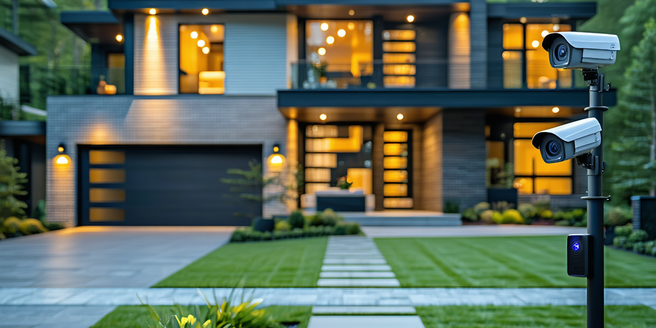No-cost Home Security Audits

Understanding the Importance of Home Security
Home security is essential in safeguarding your family and property from potential threats. With increasing incidents of burglaries and thefts, understanding the importance of home security cannot be overstated. A secured home not only gives you peace of mind but also deters criminals, protecting your valuable possessions. Enhanced security measures reduce the risk of unauthorized access, ensuring the safety of your loved ones. In an era where technological advancements provide numerous options, investing in home security solutions is wise. From simple locks to sophisticated alarm systems, the choices are customizable to your needs. Regular evaluations and updates to your security setup can adapt to evolving risks, reinforcing your primary defenses. In essence, prioritizing home security is a proactive step toward a safer living environment.
Steps to Prepare for a Home Security Audit
Preparing for a home security audit involves several crucial steps to ensure a thorough evaluation. First, review your current security measures, such as door locks, window latches, and alarm systems, to identify potential weaknesses. Gathering documentation related to past security incidents or repairs can provide the auditor with useful insights. Secondly, ensure all areas are accessible for the auditor, as they will need to conduct a comprehensive inspection. It’s also advisable to make a list of any specific concerns or questions you might have regarding your home’s security. Communicate openly with the auditor about any recent changes or upgrades. By being prepared, you allow the auditor to provide detailed recommendations tailored to your needs, ultimately enhancing your home’s security.
Key Areas Evaluated During the Audit
During a home security audit, several key areas are methodically evaluated to identify vulnerabilities. Entry points, such as doors and windows, are inspected to ensure they have secure locks and hinges. The review also covers the effectiveness of security lighting and its coverage of the property’s perimeter. The auditor assesses the current alarm system setup, verifying its functionality and response mechanisms. They may also examine your property’s landscaping, as overgrown vegetation can provide cover for intruders. External structures like garages or sheds are checked for adequate security. Additionally, auditors look at CCTV systems for strategic placement and effectiveness. The goal is to create a comprehensive report pinpointing areas of improvement, suggesting both immediate actions and long-term solutions for enhanced security.
Common Security Vulnerabilities at Home
Recognizing common security vulnerabilities in homes is essential to strengthen defenses against intrusions. One frequent issue is inadequate locking mechanisms on doors and windows, which can be easily bypassed by determined burglars. Poor lighting around the property’s exterior also contributes, as darkness provides cover for illicit activities. Another vulnerability arises from overgrown shrubs and trees, which can conceal movement and create hiding spots. Many homeowners overlook the importance of securing secondary structures like garages, sheds, or basements. An outdated or inactive alarm system further compromises security, offering a false sense of protection. Additionally, the misuse or absence of surveillance cameras diminishes the ability to monitor and respond to incidents. Being aware of these vulnerabilities allows you to take corrective measures, significantly enhancing your home’s security.
Tips for Choosing a Reliable Audit Service
Selecting a reliable home security audit service requires careful consideration of several factors. Start by researching potential companies, focusing on their reputation, qualifications, and customer reviews. It’s crucial to verify their experience in conducting thorough and professional audits. Confirm that they utilize up-to-date technology and follow industry best practices. Reliable services should offer clear mutual communication, ensuring you understand their findings and recommendations. Additionally, request a detailed quote outlining the service scope and costs involved, checking for hidden fees. Professional auditors should provide references or case studies that demonstrate their competence. Ensure they have appropriate licensing and insurance, safeguarding your home during the audit process. By evaluating these factors, you can choose a service that provides peace of mind and enhances your home’s security.